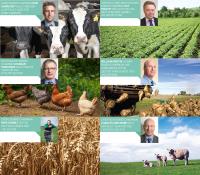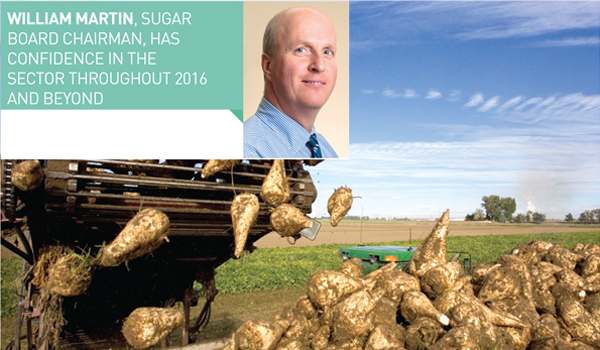We have known for some time that the change was coming, but now that we are closer we can start to see more of what it actually means for us.
The backdrop is positive. Over the past 20 years, sugar beet yields have continued to increase by some 2% annually. At the same time, not only have yields from other crops we grow stagnated, but so too have sugar cane yields. This means that sugar beet in the UK is now more productive, in terms of tonnes of sugar per hectare, than sugar cane in any of the major producers around the world. What’s more, independent analysis suggests that the beet industry in the UK is one of the most competitive in the world alongside the Dutch, as a result not only of our yields but also our excellent business structures and our efficient processor, British Sugar.
The consequence of this is that we are able to look ahead to the end of sugar quotas with confidence, as an opportunity to thrive, as opposed to seeing it as a threat.
NFU Sugar is busy preparing for this new set of conditions. Some important things won’t change. We continue to invest in research and development, through the BBRO, to ensure that farm performance and cost-competitiveness doesn’t stop improving. We will continue to monitor the activities in the tarehouse and at beet reception.
We are studying what we can learn from other successful sugar industries around the world. Most importantly, we are working with British Sugar to develop beet supply contracts which will meet the requirements of the industry in the future.
2015 around the sectors...
 Read the thoughts of our board chairmen across the following farming sectors:
Read the thoughts of our board chairmen across the following farming sectors:
We have secured a commitment from British Sugar for those growers who value the certainty offered by our current arrangements of a fixed price known in advance. This includes a guarantee that growers
who meet the terms of their contract one year will continue to be offered a contract the next year. However, some businesses want something else, perhaps in addition to what we already have. We are investigating how it might be possible to allow growers to share more closely in the ups and downs of the sugar market, perhaps through a base price combined with the potential for market-linked supplements.
This would probably be in the context of longer agreements than the current annual ones.
Other growers have become increasingly concerned over the extended campaigns, and would like the chance to have more control over when their beet is delivered. We are looking at whether variable pricing across the season could help to smooth out supply into the factories according to growers’ aspirations.
There are bound to be other opportunities in the future. The UK beet industry has the chance to become a leading supplier of sugar, not just to our home market but also to the export market, if we succeed in exploiting the possibilities in front of us. NFU Sugar will continue to represent the interests of UK beet growers. I am sure that if we stick together we will be able to thrive.
